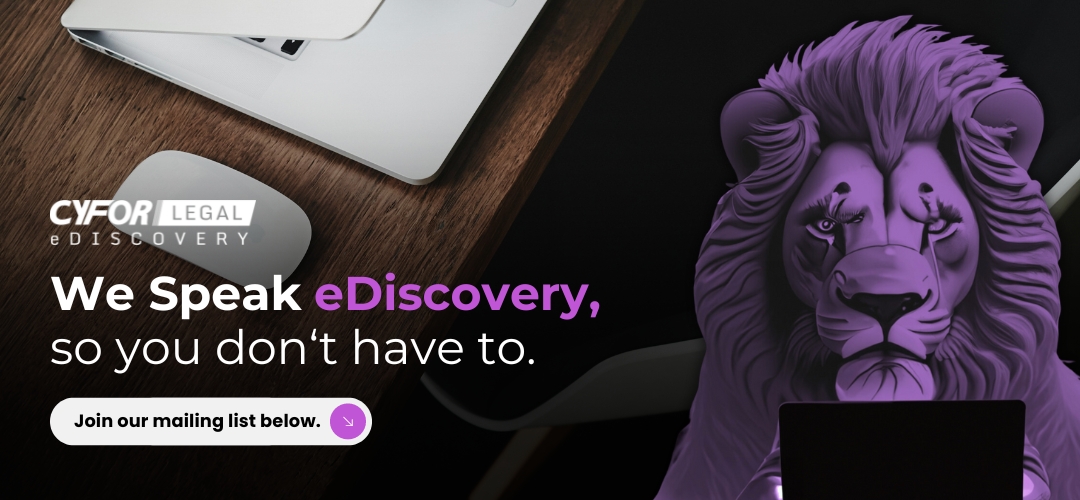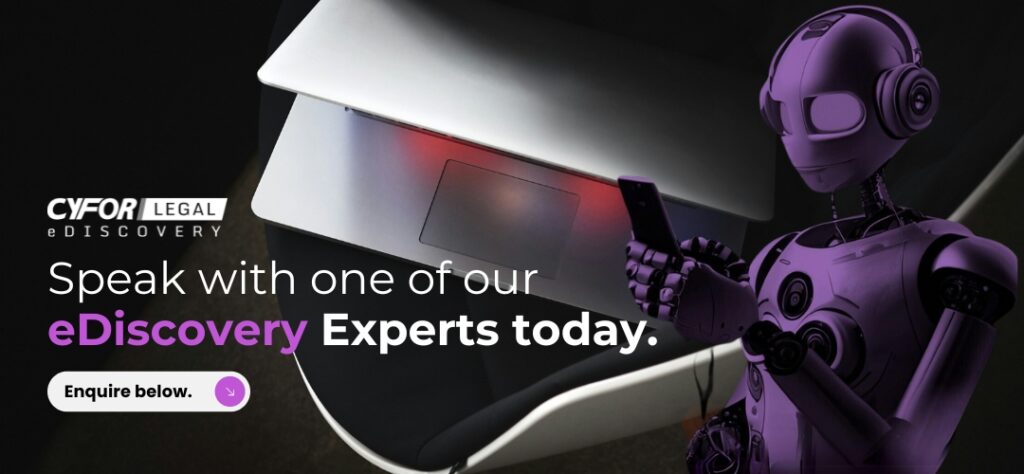Collecting data in a forensically sound manner is crucial within eDiscovery and digital forensic investigations to ensure presenting accurate evidence in court.
Is the client is not willing to instruct a provider to manage a disclosure exercise? If yes, you could be leaving yourselves open to criticism by the court and the opposing party. CYFOR Legal always advise clients to allow for forensically collected data during an eDiscovery matter. This is the only way to preserve the metadata within the documents, which can be extensive in volume.
What is Metadata?
Metadata is the information generated within a piece of electronic data and is effectively the ‘data about the data’. Metadata exists within every digital item and in physical devices such as computers and smartphones. Preserving metadata is critical within eDiscovery and civil litigation exercises. Failing to do so would enable the opposing side to challenge your eDisclosure process. And/or, accuse your client of fraudulently creating documents..
If we have a forensically collected copy of the data, this gives credibility to your disclosure matter in a court of law. This would essential confirm that all documents are legitimate. Which, in turn, would not be possible if the client carries out the collection themselves.
Forensic Methodology
CYFOR Legal adopts the methodology of ‘collect wide, review narrow’ to ensure that they don’t miss any evidential data. Following this process eliminates the risk of the opposing side. Avoiding them potentially accusing you of not having reviewed or disclosed all relevant information. If you allow the client to review the data before you do, they would be able to withhold potentially relevant information. This could be detrimental as the opposing side can challenge this in court.
Online Review Platforms
Online document review platforms are powerful and indispensable tools within the eDisclosure process. They effectively manage vast amounts of electronically stored information (ESI) in litigation and dispute resolution. They allow you to search across datasets to quickly identify, organise and tag documents. Which reduces the overall review time and drastically reduces costs. CYFOR Legal utilises leading industry technology to ensure that they gather your data in a forensically sound manner. With this being presentable and reliable in a court of law.
Explore our complete eDiscovery solutions suite here.




